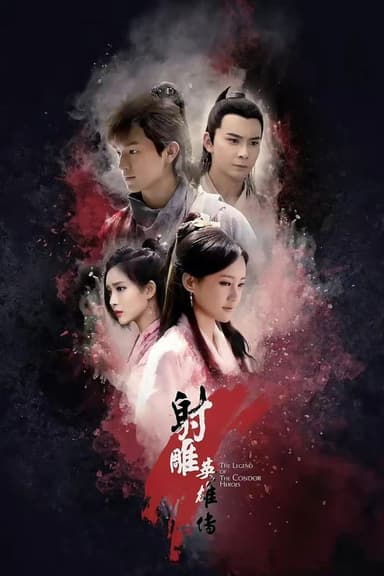
Heavenly Sword and Dragon Sabre
2003 • Drama
Based on the popular novel by Jin Yong Kam Yung. He also wrote Legend of the Condor Heroes and Return of the Condor Heroes. The Heavenly Sword and Dragon Sabre takes place during 14th Century China during the Mongolian Yuan Dynasty, roughly 100 years after the events of Return of the Condor Heroes. After decades of struggles, famine, and bitterness which the Chinese citizens blamed on the Yuan Dynasty's misgovernment, the Martial Arts sects have begun to rebel. Prince Ruyong asks Cheng Kun, a Shaolin monk with an ulterior motive, for a plan on how to deal with the rebels.
"The wielder of Heavenly Sword and/or Dragon Sabre rules the world."
This well known legend in the Martial Arts community is the impetus for the tale of Zhang Wuji. The story begins with how his parents met (episodes 1-3), then tells his trials as an adolescent (episodes 4-8), proceeds to relate his rise to prominence (episodes 9-23) and reveals the secret behind Heavenly Sword and Dragon Sabre (episode 23), and ends with the confluence of Wuji's love life, the Martial Arts sects' long standing grudges, and cruel fate.
Why you should read the novel
Immersing yourself in Jin Yong's 'Heavenly Sword and Dragon Slaying Sabre' opens new dimensions that no screen adaptation can fully convey. The novel offers elaborate character growth, nuanced motivations, and intricate martial arts philosophies that often lose depth during adaptation. Through the author's prose, readers travel through a rich tapestry of ancient China's martial world, uncovering secrets, betrayals, and legendary techniques firsthand.
Jin Yong's writing brings to life the internal struggles, complex loyalties, and moral dilemmas of characters far beyond what's possible within the time constraints of a television series. The relationships and character arcs gain subtlety through rich backstories and introspective passages, deepening your connection with each protagonist and antagonist. Furthermore, the source novel presents historical and cultural contexts that imbue the story with greater meaning.
By choosing to read the novel, you'll find carefully crafted language, hidden nuances, and detailed descriptions that paint the universe in vibrant colors. Whether you are a longtime wuxia fan or a newcomer, Jin Yong’s original text offers an unmatched exploration of the martial arts world, inviting you to experience the timeless saga at your own pace and depth.
Adaptation differences
One major difference between the 2003 TV adaptation and Jin Yong's novel lies in how the plot is streamlined and altered for pacing. The show condenses or omits several subplots and secondary characters, focusing more on the primary romance and battles, which reduces the political intrigue and detailed backstories present in the novel. Many complex interactions, especially those that help explain characters' choices, are either simplified or reimagined for clarity and length.
The novel features in-depth internal monologues and moral conflicts, particularly for the protagonist Zhang Wuji, which are largely reduced or externalized on television. As a result, viewers may miss subtle layers of his decisions, struggles, and ethical dilemmas, leading to a more straightforward and sometimes less sympathetic portrayal than in the novel. Several nuanced relationships, such as those with the four heroines, are also adjusted or given less screentime, impacting their development.
Action sequences and martial arts techniques, described vividly and in great detail within the book, are necessarily visualized differently in the adaptation. Some legendary skills may not translate well to television due to budget or special effects limitations, altering the sense of awe and the skill progression that is so integral in the novel. Furthermore, small details like the significance of certain weapons or sect rivalries can sometimes be glossed over or interpreted differently.
Lastly, the adaptation often modifies or omits historical and philosophical discussions that Jin Yong embeds in the narrative. The original text is full of commentary on power, loyalty, and the martial arts community, as well as subtle reflections on the political climate of the era. These deep philosophical and ethical undertones are often left out or underplayed, changing the thematic weight and resonance of the story compared to the enriched literary experience the novel provides.
Heavenly Sword and Dragon Sabre inspired from
Heavenly Sword and Dragon Slaying Sabre
by Jin Yong






